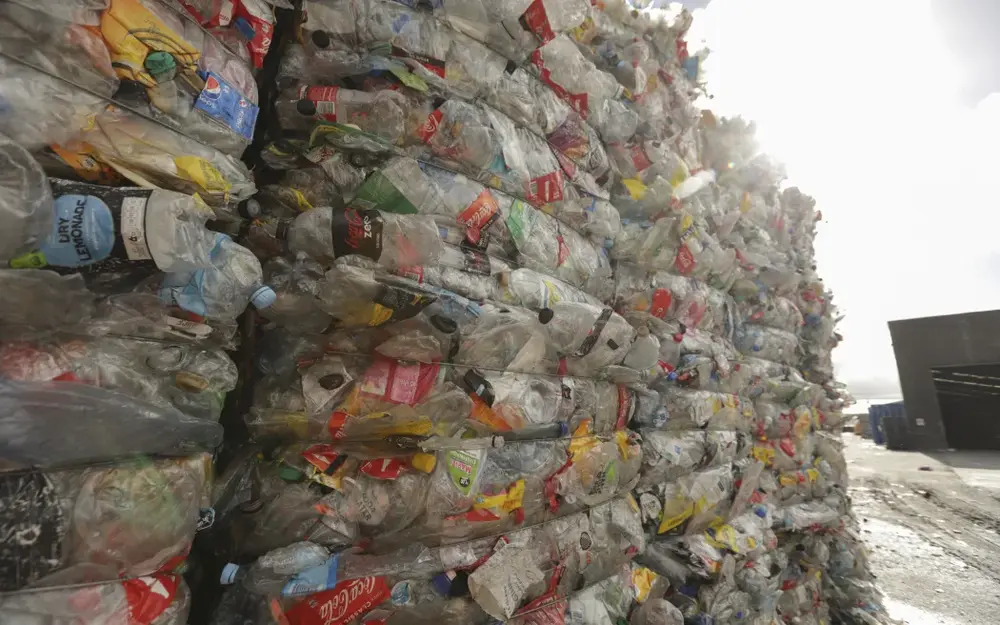Your in-depth guide on what you can and cant recycle from today
RNZ
31 January 2024, 7:40 PM

Recycling rules are about to change through much of the motu from today.
The rules come as part of a new initiative to standardise the recycling service across the country by 2027. The strategy also saw the introduction of food scrap bins.
Four councils, unable to meet the deadline, have until 2027 including Clutha, Hurunui, and Westland District Councils. They will add glass to their collection, while Gore District Council needs to add paper and plastic.
Eight other councils do not have a kerbside collection at all - and the new government has not yet decided whether those councils will be required to provide kerbside recycling by 2027, the ministry said.
The main points of the standardisation for all district and city councils mean, from 1 February:
- Only plastics 1, 2 and 5 will be collected. (If the recycling symbol on a package does not have a number inside, it cannot go in your kerbside bin)
- In addition, you can put glass bottles and jars; paper and cardboard; and aluminium and steel tins and cans
- Aerosol cans will not be recycled; dispose through your local Transfer Station, metal recycler or in your council roadside rubbish collection
- Liquid paperboard (like Tetra Pak), milk and juice cartons will not be recycled; dispose through your local Community Recycling Centre, Transfer Station or in your council roadside rubbish collection
- Anything less than 50mm x 50mm cannot be recycled
- All lids must be removed and are to be disposed of through the council roadside rubbish collection
About 16 percent of materials in recycling bins cannot be recycled, which contaminates a bin and makes it unrecyclable.
Plastic bags should not go into the recycling bin - they get caught in the sorting machine.
Plastic bags and soft plastics can be put in special recycling bins at participating stores. Otherwise put them in your rubbish bin.

(file image) Photo:
What are these plastics labelled 1, 2, 5?
Plastics 1, 2 and 5 are used in the majority of the plastic packaging we put in our recycling bins.
Waste Solutions general manager Parul Sood said these plastics were more easily turned into other products than packaging made out of plastics 3, 4, 6, and 7, which were lower in quality.
"This means there are limited markets for them anywhere in the world. It is important to reduce our dependence on plastics and to reuse them rather than recycling right away."
Here are some examples of what these containers with numbers might include.
Number 1: Polyethylene terephthalate (PET)
- Fruit and vege punnets
- Soft drink and water bottles
- Harder plastic containers that hold spreads like peanut butter and mayonnaise
Number 2: High-density polyethylene (HDPE)
- Milk bottles
- Juice bottles
- Shampoo bottles
- Cleaning bottles
Number 5: Polypropylene (PP)
- Some takeaway containers
- Plastic cutlery
- 2l ice cream containers
- Large yoghurt containers
Here are some examples of what the plastics no longer accepted by recycling may include. These should either go in your rubbish bins or contact your council for more ways. Council websites also have more information about disposal methods for non-recyclable items.
Number 3: Polyvinyl chloride (PVC)
- Clear trays for holding food or takeaways
- Some large containers with sturdy handles
- Plastic containers used for storing or packaging things like batteries or electronics
Number 4: Low-density polyethylene (LDPE)
- Some meat trays and takeaway containers
- Single use plastic bags
- Bubble wrap
- Plastic wrap
Number 6: Polystyrene (PS/EPS)
- 6pk yoghurt pottles
- Some meat trays
- Foam cups
- Protective packaging
Number 7: Other plastics (a mix of different plastics, including BPA, polycarbonate, acrylic, nylon, polylactic fibres and fibreglass.)
- Baby bottles and sippy cups
- CDs
- Plastic toys
- Packaging for some food and electronics
This story was originally published by RNZ



